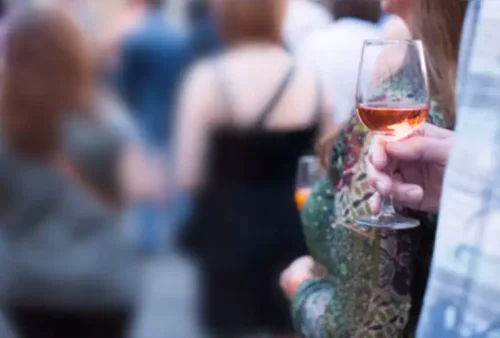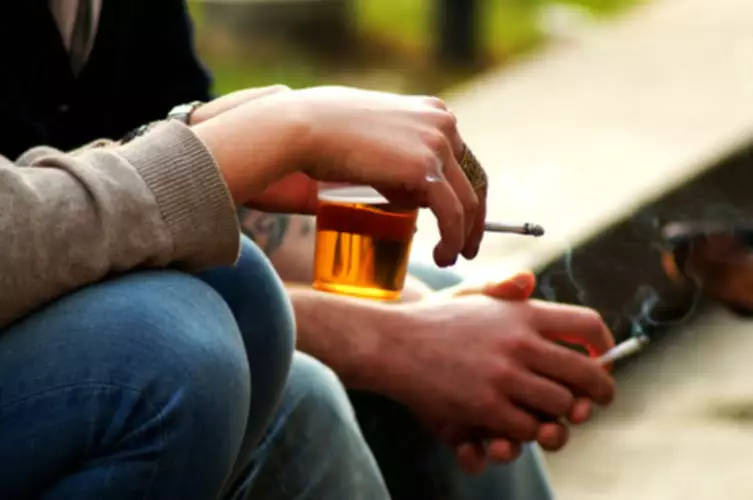- 07octobre
-
Binge Drinking Alcohol, Bruising Or Discoloration, Dizziness And Dry Skin

This is of particular concern when you’re taking certain medications that also depress the brain’s function. Unhealthy alcohol use includes any alcohol use that puts your health or safety at risk or causes other alcohol-related problems. It also includes binge drinking — a pattern of drinking where a male has five or more drinks within two hours or a female has at least four drinks within two hours. Alcohol use disorder is a pattern of alcohol use that involves problems controlling your drinking, being preoccupied with alcohol or continuing to use alcohol even when it causes problems.

When Alcohol-Related Bruising Needs Medical Evaluation
Meanwhile, binge drinking focuses more on how quickly and how much you drink in one sitting. The CDC defines binge drinking as drinking that brings your blood alcohol concentration (BAC) to 0.08% or more. This is usually achieved if you consume five or more standard drinks on a single occasion for men or four or more drinks on a single occasion for women. If you or someone you love suffers from alcohol use disorder or any of its health effects, book an appointment with us at CuredNation. The excessive alcohol in the bloodstream becomes too alcohol and bruising much for the liver to process, posing a risk of generalized tonic-clonic seizures.
Are there any specific vitamins or supplements that can help prevent alcohol-induced bruising?
- Individuals who consume alcohol should be aware of this risk and take steps to reduce it, such as limiting alcohol intake, staying hydrated, and maintaining a balanced diet.
- Finally, a person with an alcohol use disorder will likely give up other activities, because their focus is on drinking.
This disorder also involves having to drink more to get the same effect or having withdrawal symptoms when you rapidly decrease or stop drinking. Alcohol use disorder includes a level of drinking that’s sometimes called alcoholism. According to Scott Swartzwelder, Ph.D. (coauthor of Buzzed), consistent vasodilation caused by drinking alcohol leads to more blood flowing through your blood vessels. “It probably varies between individuals, and there are a multitude of factors which contribute, including age and underlying medical conditions,” Rieder says.
Sign In To Continue Reading
Something people might notice with ongoing, severe alcohol misuse is bruising from alcohol. Learn the answer, as well as how to get help with medication assisted treatment for alcohol use, below. Genetic, psychological, social and environmental factors can impact how drinking alcohol affects your body and behavior. Theories suggest that for certain people drinking has a different and stronger impact that can lead to alcohol use disorder. If you feel that you sometimes drink too much alcohol, or your drinking is causing problems, or if your family is concerned about your drinking, talk with your health care provider.

Q10: Can alcohol affect bruising for individuals with certain medical conditions?
So, https://ecosoberhouse.com/ yeah, the morning after a night out with your friends, you may think you look wrinklier, but once your body has recovered and you’re no longer dehydrated, that effect should dissipate. Well, alcohol intake may lead to night sweats by speeding up your heart rate and widening your blood vessels, triggering the release of perspiration. Hence, drinking alcohol makes it harder for your immune system to gear up and mount a defense response against invading pathogens and viruses. As a result, you may find yourself having frequent sore throat pains, catching colds and infections more often.

Q6: Are there any supplements that can help prevent bruising?
Brain changes from repeated alcohol misuse lead to compulsive drinking and make it difficult to stop without treatment. Older adults may be more prone to alcohol-related bruising due to age-related changes in skin elasticity, blood vessel fragility, and blood clotting mechanisms. Additionally, older adults may have underlying health conditions that make them more susceptible to bruising. While alcohol itself doesn’t directly cause bruises, excessive alcohol consumption can lead to injuries that result in bruising. Alcohol can impair coordination, balance, and judgment, making individuals more prone to accidents and falls that can cause bruises.
Are there specific areas of the body where alcohol-induced bruising is more common?
More seriously, this reduced clotting leads to an increased risk of stroke. Alcohol can also lead to excessive sweating – known as alcohol sweats or night sweats. For many, this is a problem that will keep us tossing and turning at night, leading to alcohol affecting our sleep. Sleep is crucial across the lifespan, but needs and habits evolve over time. Understanding sleep changes from infancy to older adulthood promotes lifelong health. While not inevitable, alcohol-related bruising and injury can be better prevented with education, risk reduction strategies, and basic safety precautions.
- However, excessive vasodilation caused by external factors, like drinking alcohol, can be problematic.
- If you are concerned about your drinking or any symptoms, seek prompt advice from a healthcare provider.
- Something people might notice with ongoing, severe alcohol misuse is bruising from alcohol.
- Perhaps the most common cause of bruising from alcohol is that alcohol acts as a vasodilator, making blood vessels larger.
- In some cases, alcohol-induced bruising can be a sign of more severe underlying issues related to alcohol abuse or chronic health conditions.
Liver disease
Read on to find out how drinking — even occasionally and socially — affects your skin, and what you can do to minimize its impact. There are many facial signs of alcoholism, but one of the most common signs is redness in your face. By this stage, their drinking is taking an obvious physical toll as well. Chronic alcohol use can weaken blood vessels, making them more prone to breaking and causing bruising. Alcohol also impairs the body’s ability to clot blood, leading to potential bruises from even minor injuries. Alcohol consumption without a good meal prior may result in headaches, dizziness, and nausea.

Additionally, drinking can aggravate certain skin conditions, such Alcoholics Anonymous as psoriasis and rosacea. If you’re not consciously keeping track of the drinks you’ve chugged, it’s easy to go over these limits. When that happens, it’s best to consult a professional to prevent the issue from becoming a full-blown alcoholism.
Posted by admin_av Posted on 07 OctDrop us a line


Post Comments 0